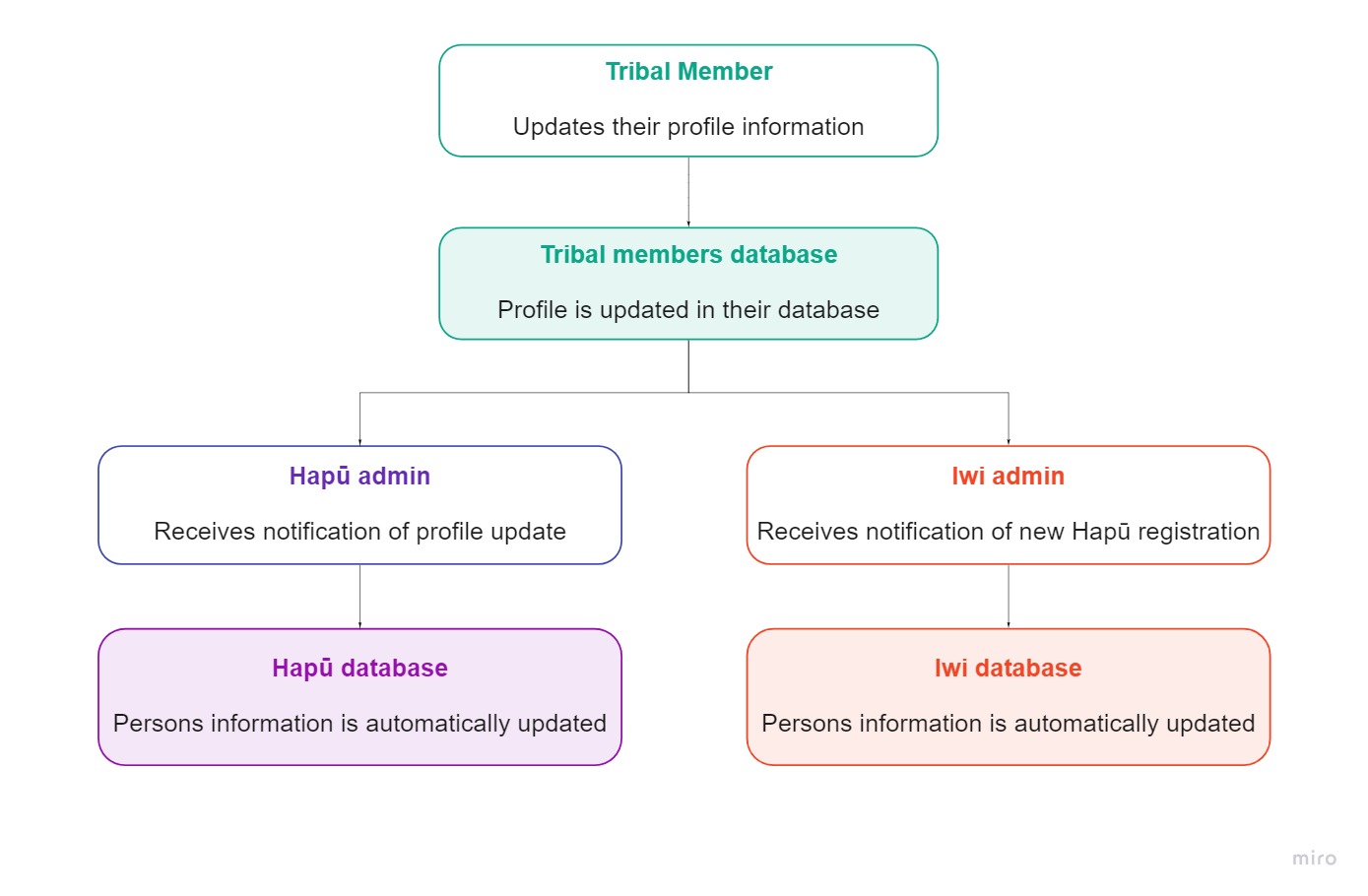Treasures of the past, guiding our future
.jpeg)
Tribal registries are essential for managing relationships, entitlements, and governance across iwi. But many systems are slow, centralised, and costly to maintain — leading to outdated records, communication breakdowns, and tension within communities.
Together with our research partners, we’re developing a new approach: a distributed registry system that gives hapū and whānau more control over their own data.
Key features:
Whakapapa doesn’t belong to a single person or database — it’s a shared, living record. Our system supports individuals to submit their connections to their hapū and iwi, where they can be reviewed and confirmed by trusted admins and record holders.
This approach ensures:
Our system is designed as a distributed network — where each Hapū or Iwi hosts its own secure database. These databases talk to each other via encrypted connections and shared rules for managing updates and verifying identity.
Everyone involved:


Whānau submit whakapapa → Hapū verifies → Records are securely stored.


Approved entries are shared (with permission) across databases for coordination.


When a whānau member updates their details, the changes automatically sync across approved databases.

Want to learn more about using Āhau? Check out our documentation.
You can also connect directly with our team.